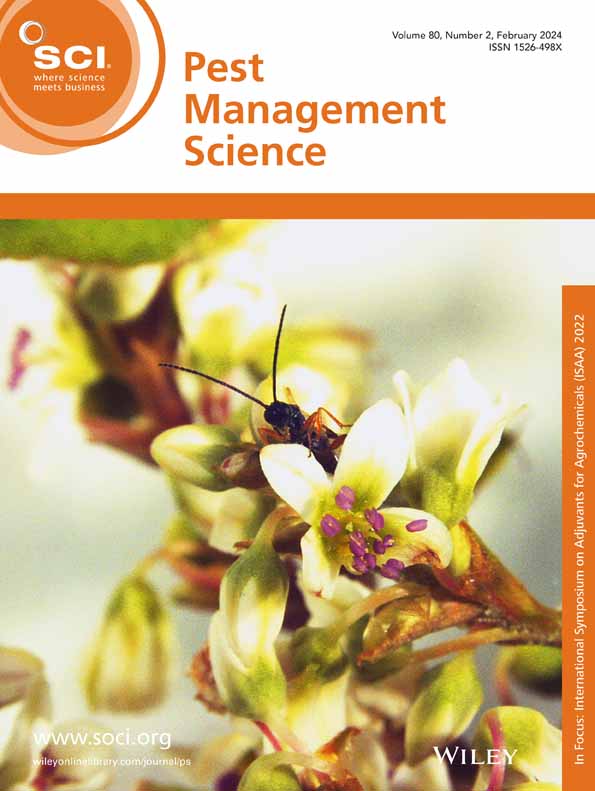NezhNPV, a new biocontrol agent for Nesodiprion zhejiangensis Zhou & Xiao (Hymenoptera: Diprionidae), an emerging forest pest
Abstract
BACKGROUND
Nesodiprion zhejiangensis, a multivoltine sawfly, is widely distributed in south China and has caused serious damage to forests. Historically, N. zhejiangensis management has relied heavily on synthetic chemicals. To reduce the reliance on chemical control, we previously isolated a nucleopolyhedrovirus, NezhNPV, from deceased N. zhejiangensis larvae. A subsequent pathogenicity assay confirmed its high virulence in a laboratory setting.
RESULTS
In order to comprehensively examine the hypothesis that NezhNPV is an effective new biocontrol agent for N. zhejiangensis, we carried out a field test in Beijing, China, and characterized NezhNPV morphologically by electron microscopy and genetically by genome sequencing. Our field trials showed that NezhNPV was effective in controlling N. zhejiangensis in a naturally infested Himalayan blue pine forest. The occlusion bodies of NezhNPV consist of irregular polyhedra that occlude rod-shaped enveloped virions with a single nucleocapsid per virion. The NezhNPV genome is 80 637 bp in length, and contains 90 open reading frames, including 38 core, eight lepidopteran baculovirus, 34 hymenopteran baculovirus and 10 unique baculovirus genes, representing the smallest known genome among baculoviruses. The combined results based on phylogenetic analyses, Kimura-2-parameter distances and biological characteristics indicate that NezhNPV is a novel gammabaculovirus and candidate for species status with the provisional name Gammabaculovirus nezhejiangensis. NezhNPV is highly collinear with other gammabaculoviruses and contains nonsyntenic regions with an inversion and rearrangement between orf3 and orf35.
CONCLUSION
The combined results from our field trials, coupled with morphological and genomic characterization clearly demonstrate the bioactivity of NezhNPV. This gammabaculovirus may be included in pest management practices against N. zhejiangensis as a novel biocontrol agent. © 2024 The Author(s). Pest Management Science published by John Wiley & Sons Ltd on behalf of Society of Chemical Industry.


 求助内容:
求助内容: 应助结果提醒方式:
应助结果提醒方式:


